Students from Kaiwei Wang and Jian Bai Group attended the SPIE International Conference
9-12,September, 2019
From September 9 to 12, 2019, seven students from Kaiwei Wang and Jian Bai Group attended the SPIE Remote Sensing and Security + Defence 2019 International Conference held in Strasbourg, France.

On the first day of the conference, Jiafeng Shen and Yicheng Fang attended the Understanding Scenes session and delivered speeches entitled A depth estimation framework based on unsupervised learning, and cross-modal translation and Visual place recognition based on multi-level descriptors for the visually impaired people, respectively.
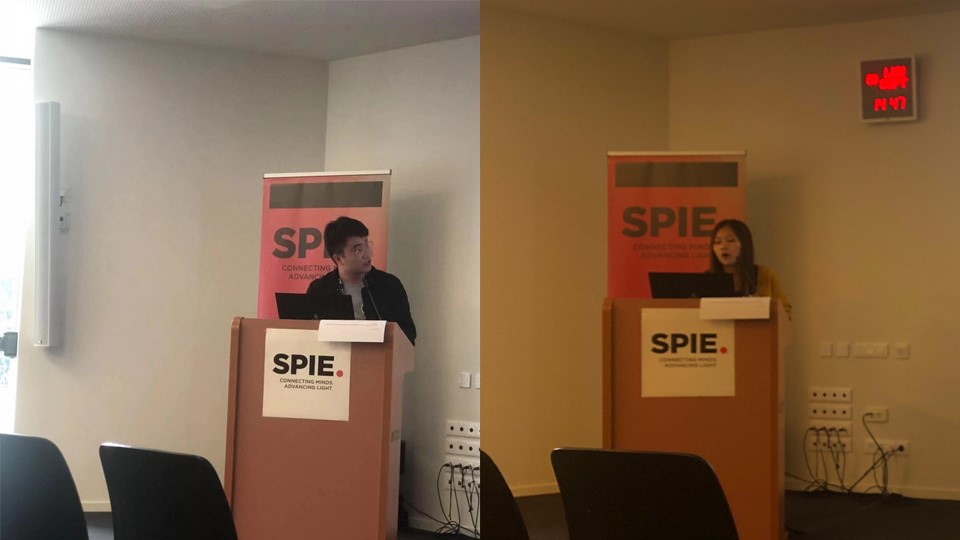
At noon the next day, Dongming Sun gave a speech entitled A multimodal vision sensor for autonomous driving. He showed listeners the multimodal sensor for autonomous driving developed by Kaiwei Wang's research group. In the afternoon, Chengyou Xu explained her research topic: Semantic scene understanding on mobile device with illumination invariance for the visually impaired in the poster presentation session. This research which is full of practical significance, attracted many researchers.
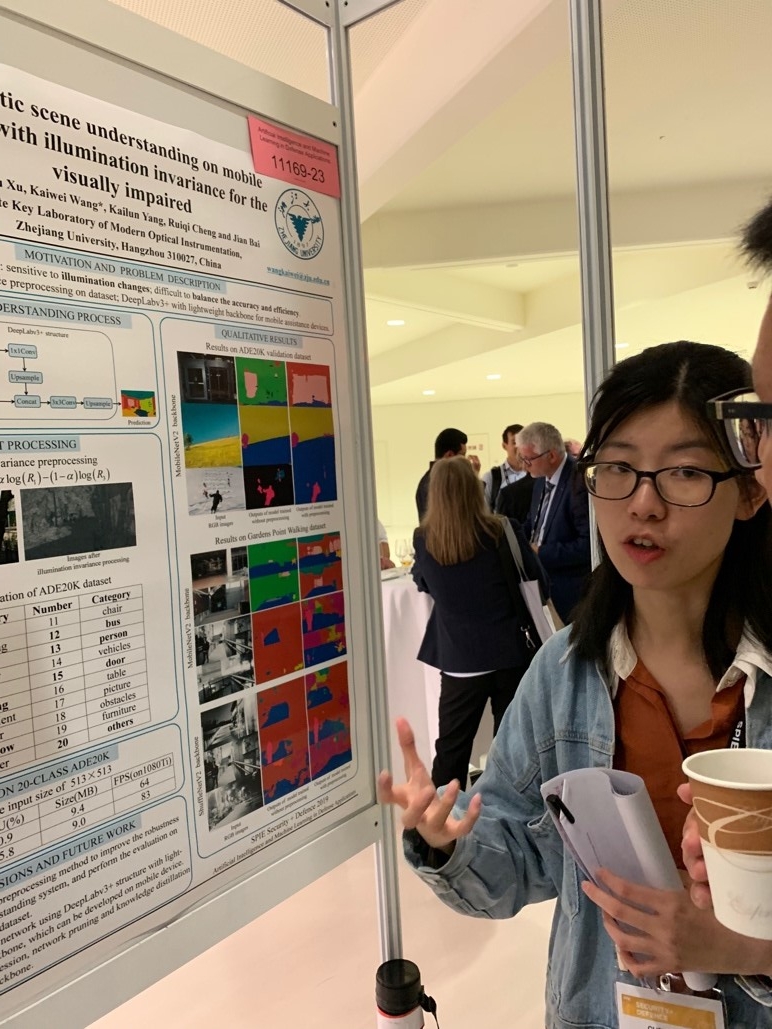
On the afternoon of the third day Lei Sun, Dongming Sun, and Kaite Xiang attended the Segmentation session of the conference and gave keynote speeches on their research topics respectively. Lei's topic is See clearer at night: towards robust nighttime semantic segmentation through day-night image conversion, introducing how to improve the robustness of semantic segmentation at night.
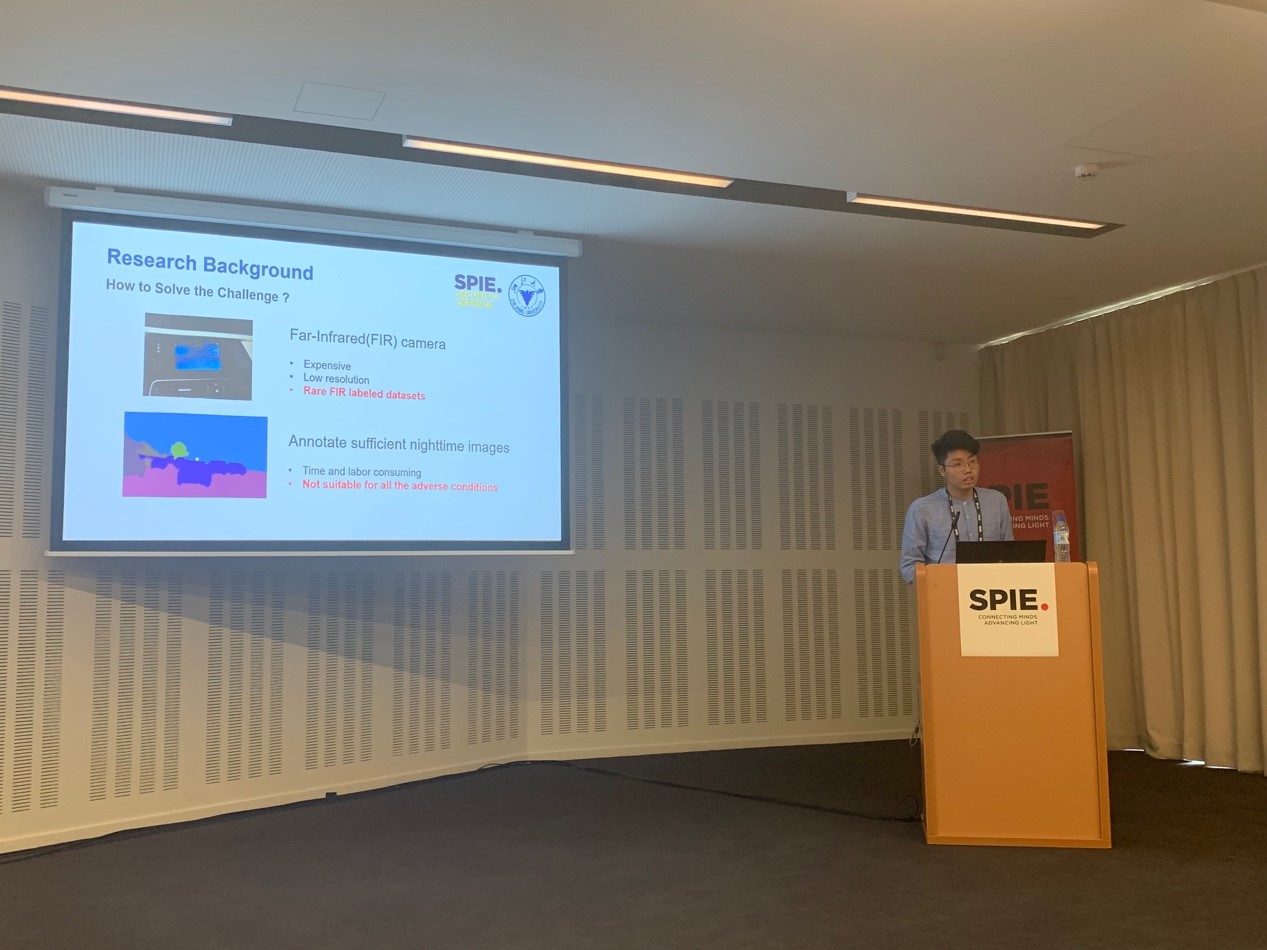
Dongming introduced Semantic segmentation of panoramic images using a synthetic dataset, of which the first author is Yuanyou Xu. The research is to generate a panoramic image dataset with semantic annotations by using a multi-view image stitching technique.

Kaite' topic is:A comparative study on high-recall real-time semantic segmentation based on swift factorized network.
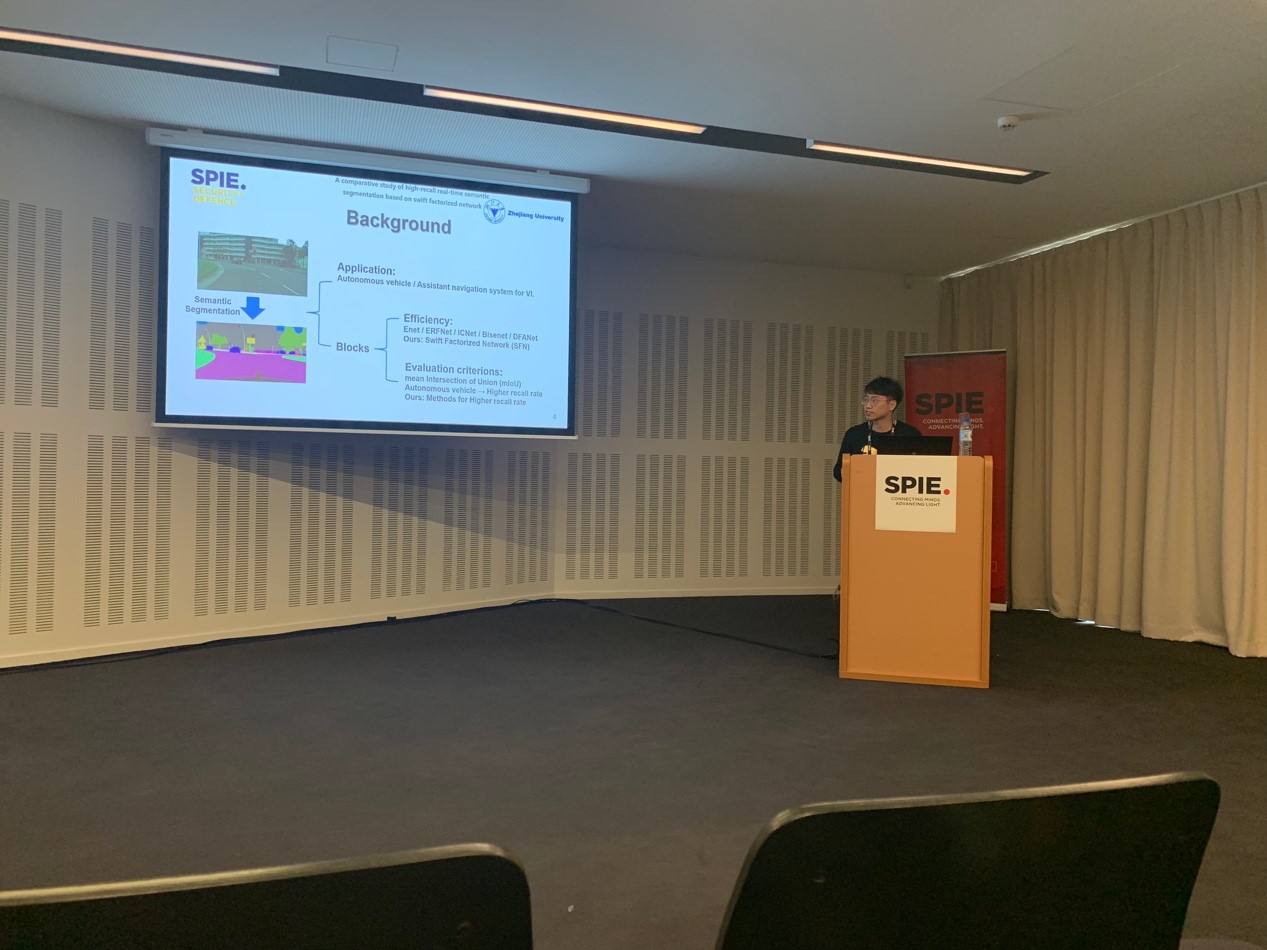
In the evening, Jing Wang from the Jian Bai Group gave a speech entitled Transparent object sensing with enhanced prior from deep convolutional neural network, introducing how to use CNN to retrieve Zernike polynomials from images.
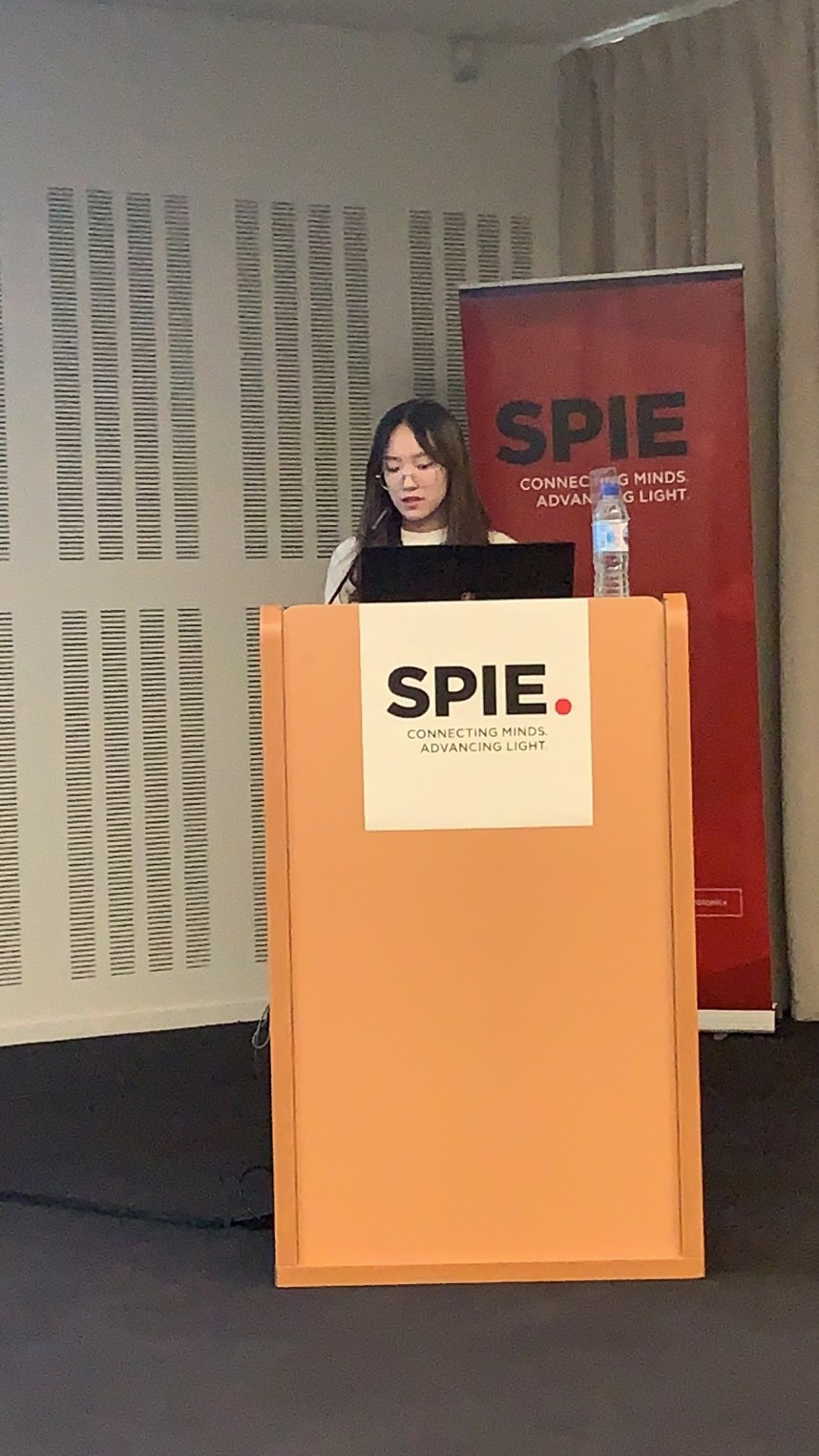
On the evening of the 13th, the team departed from Paris back to Hangzhou, ending a compact and rich meeting schedule.
